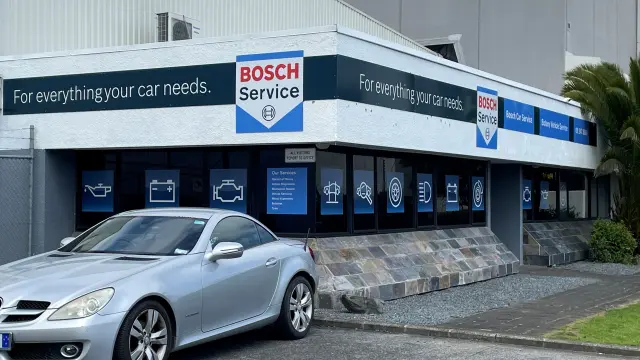Bosch, the world's largest supplier of car parts, is set to cut up to 5,500 jobs due to the slowdown in electric vehicle (EV) sales and increased competition from cheaper Chinese imports. This marks a significant blow to the European automotive sector, following similar announcements by Volkswagen and Ford in recent weeks. The job cuts, primarily affecting Bosch’s car parts division, reflect the ongoing challenges faced by traditional European manufacturers as they navigate the shift towards electric and software-controlled vehicles.
The company attributed the layoffs to a slower-than-expected transition to electric vehicles and a decline in demand for its advanced driver assistance systems and automated driving technologies. These systems, once seen as key to the future of mobility, are now facing tough competition from more affordable Chinese-made electric cars, which is pushing European carmakers to reassess their strategies. Bosch’s decision to cut jobs is part of a broader restructuring plan as the company adapts to the rapidly changing automotive market.
Germany, traditionally the heart of Europe’s car industry, has been hit particularly hard. As the country faces economic uncertainty, including a narrowly avoided recession, demand for new cars has fallen, exacerbating the challenges for automakers. Bosch’s cuts will be spread over several years, with approximately half of the reductions affecting its German locations. The company has emphasized that the job losses will be carried out in a "socially responsible" manner and that discussions with employee representatives are ongoing.
The most significant job cuts will occur at Bosch's Gerlingen site near Stuttgart, where around 3,500 positions in car software and automated driving technology will be eliminated by 2027. Additionally, 750 roles will be cut at the Hildesheim site by the end of 2032, and 1,300 positions will be lost at the Schwaebisch Gmund plant between 2027 and 2030. While these reductions are significant, Bosch has made a commitment not to lay off employees in Germany until at least 2027 for most of its workforce, with certain subgroups protected until 2029. This pact, which was established in previous years, will remain in place despite the recent restructuring.
Bosch’s move to reduce its workforce follows a broader trend in the European automotive industry. Volkswagen recently announced plans to close three factories in Germany and scale down production at several other sites, resulting in the loss of tens of thousands of jobs. Ford, too, has joined the ranks, revealing plans to eliminate 4,000 positions across Europe, including 800 in the UK, as part of its own response to weakening EV sales and regulatory pressure.
The struggles of these industry giants highlight the shifting dynamics of the global automotive market. As the demand for electric vehicles continues to fluctuate and competition intensifies, European manufacturers are facing increasing pressure to adapt to new consumer preferences and government regulations. The job cuts at Bosch, Volkswagen, and Ford underscore the significant transformations taking place within the industry as companies reassess their production strategies and adjust to the evolving landscape of mobility.
In the face of these challenges, Bosch and its competitors will need to balance the need for innovation with the realities of economic pressures and job market concerns. The shift toward electric vehicles may be inevitable, but the road to a fully electrified automotive industry is proving to be more complex and costly than many had anticipated.
SKYNEWS
Read More






 Monday, 16-02-26
Monday, 16-02-26







